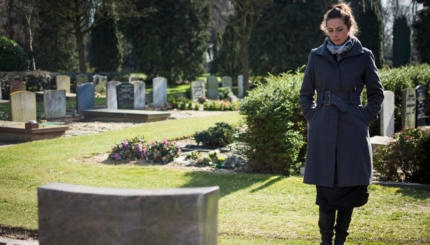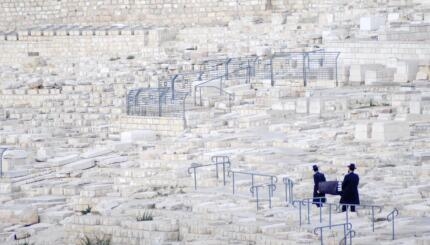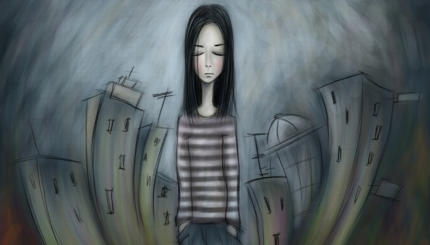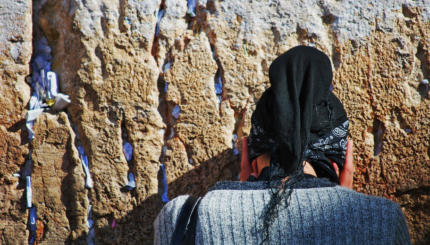Mourning Rituals
Why Jews Put Stones on Graves
Although the custom of placing them on a grave probably draws upon pagan customs, the stones also symbolize the permanence of memory.
The Tombstone, the Unveiling and Visiting the Grave
What happens at the Jewish cemetery.
Sheloshim: The First 30 Days of Mourning
Following shiva, the sheloshim period of less intensive mourning lasts until the 30th day after the funeral.
Is There a Jewish Afterlife?
Judaism is famously ambiguous about what happens when we die.
Questions and Answers About Jewish Funerals
Common questions about Jewish death and burial customs.
Special Issues in Kaddish
Study in honor of dead; women reciting Kaddish; Kaddish integrating mourners into communities; and hiring someone to say Kaddish.
Shiva, the First Seven Days of Mourning
Shiva is observed in the home as an intensive mourning period for close relatives.
How To Sit Shiva
During this Jewish mourning custom, the entire physical environment of the mourner is transformed to acknowledge the immediacy of death.
Jewish Priests (Kohanim) and Caring for the Dead
Although priests cannot have any contact with death, exceptions are made for their immediate relatives.
Torah Study For the Dead
Some Jews consider Torah study, and particularly Mishnah, to be a potent tool for elevating the souls of the departed.











